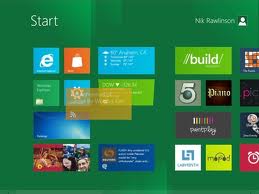 Our parent company is a training organisation and they are always astonished at companies and peoples response to training or lack of training.
Our parent company is a training organisation and they are always astonished at companies and peoples response to training or lack of training.
During times or recession one of the first things that companies cut alongside staff is training. “How can we train staff when we are paying people off?”
Well to be honest that’s exactly when you should be training your remaining staff to keep up moral and make them more effective at what they do.
Here are 10 reasons you should train your staff.
Ten Important reasons why training and investing in your staff is more important at this time than ever:-
- Training boosts morale. Staff will feel better and more motivated about working with your company if you show belief that they can improve.
- Training highlights priorities. In financially difficult times, the needs of the current staff can be directed toward specific training.
- Training is not expensive – compared to recruiting and hiring new staff. Whatever the challenges your company is facing, reducing your training budget isn’t going to improve things.
- Training is a stimulant, while cancelling training can enforce mediocrity.
- Training helps keep pace with a changing business. You need to keep up to date with new developments in order to remain competitive.
- Training encourages teamwork. If you’ve got fewer admin staff than you’ve had before then a refresher course on office apps or Project can help the existing team focus on the essentials and work together more effectively.
- Training encourages the good habits of your staff and produces your best work.
- Training creates revenue. Focused training can pay for itself over and over again by raising morale, encouraging efficiency and working at high standards.
- Training treats your staff like professionals. Staff who believe they are valued enough for you to invest in developing their skills might stay with your company a little while longer.
- Training helps maintain and improve quality and productivity.
What are your thoughts on training and sharpenning up your employess skill base? Remember as much as your organisation may produce a product or service. without the employees you produce nothing!
Let us know what you think.

